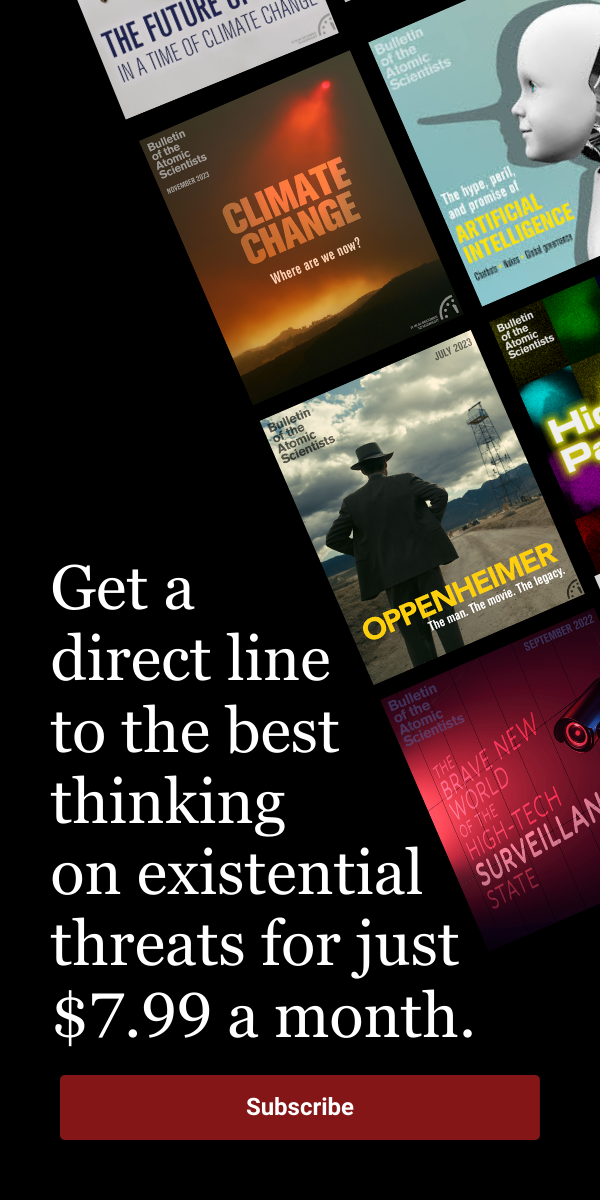IPCC report calls for rapid, deep, and immediate emissions reductions
By Jessica McKenzie | April 6, 2022
 Photo by Nicholas Doherty on Unsplash
Photo by Nicholas Doherty on Unsplash
“It’s not too late,” might as well be the subtitle of the third installment of the Intergovernmental Panel on Climate Change (IPCC) Sixth Assessment report, released Monday. But only if the world acts soon.
The process for publishing this latest report was a fraught one. The 37-page summary for policymakers is approved by IPCC member governments line by line and went overtime, forcing the IPCC to delay the press conference for the release of the Working Group III report, which deals with climate change mitigation efforts. The BBC described it as a “contentious approval session.” Some have interpreted the delay to mean governments are trying to water down the science. The Guardian reported Saudi Arabia wanted the report to acknowledge a continued role for fossil fuels and said India, China, and Ecuador also had some last-minute objections.
The new report focuses on options for mitigating global warming. It was published a little over a month after the second installment, which focused on adaptation. As expected, the report calls for steep reductions in fossil fuel use, widespread electrification, greater energy efficiency, and reusing and recycling more materials. More controversial, buzzy solutions like hydrogen and carbon capture and storage also make appearances.
Even if greenhouse gas emissions peak by 2025 and fall by 43 percent by 2030, the world will likely surpass the 1.5 degree Celsius threshold above pre-industrial temperatures that was an aspirational target of the Paris climate agreement. But if emissions reduction goals are met, the world could fall below that threshold again by the end of the century. This will require “rapid and deep and in most cases immediate GHG [greenhouse gas] emission reductions in all sectors.”
Beyond the drastic changes to energy production necessary to limit greenhouse gas emissions, the report also describes ways to reduce energy demand, like retrofitting existing buildings to be more efficient and working to build new zero-energy or zero-carbon buildings. Designing cities to be more compact and walkable also lessens demand for energy-intensive modes of transportation and has secondary benefits, including improved air quality.
Emma Garnett, a research fellow at Cambridge University, compared the new report with a draft of the summary for policymakers leaked by Scientist Rebellion last year, writing that the final version felt “much vaguer” and “watered down.” The draft report singled out carbon-intensive activities like flying, driving SUVs, and eating meat, but the version published this week pulled punches on all three. Aviation is mentioned only insofar as alternative fuels can reduce the sector’s carbon footprint (as opposed to reducing the demand for flying). Instead of advocating a plant-based diet specifically, the report calls for “shifting to balanced, sustainable healthy diets,” which a footnote clarifies “feature plant-based foods” as well as animal-sourced food. And there’s no mention of gasoline-guzzling sport utility vehicles in the summary for policymakers at all.
Even if the complete report, which clocks in at 3,675 pages, goes into more detail on things like “fuel-inefficient SUVs cars, and long-distance vacations,” the compact summary for policymakers carries more weight.
The fact that governments went to such lengths trying to shape the summary for policymakers into a more acceptable—for them—version only shows how important it is. “The fact that governments scrutinise and contest the IPCC’s findings is an indication of the importance of this assessment,” Frank Jotzo, the director of the Centre for Climate and Energy Policy at the Australian National University, tweeted. “If it didn’t matter, approval would be easy.”
Together, we make the world safer.
The Bulletin elevates expert voices above the noise. But as an independent nonprofit organization, our operations depend on the support of readers like you. Help us continue to deliver quality journalism that holds leaders accountable. Your support of our work at any level is important. In return, we promise our coverage will be understandable, influential, vigilant, solution-oriented, and fair-minded. Together we can make a difference.
Keywords: climate change, climate science, global warming, greenhouse gas emissions, ipcc report, mitigation
Topics: Climate Change















